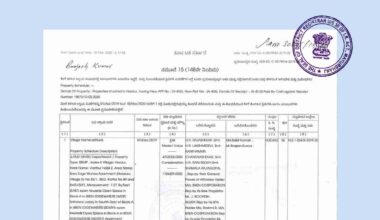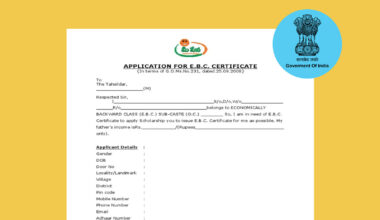A migration certificate is an important document required by students who wish to pursue further education in a different educational institution or university, usually in a different state or country. It serves as proof of their previous academic records and allows for a seamless transition between educational institutions. In this blog, we will delve into the process of procuring a migration certificate, the necessary documents, and its validity in the Indian context.
What is a Migration Certificate?
A migration certificate is an official document issued by an educational institution that certifies a student’s completion of a course or program and allows them to transfer their academic records from one institution to another. It serves as proof of the student’s academic history and facilitates a seamless transition between educational institutions, especially when the student intends to pursue further studies in a different institution, university, or state.
The migration certificate contains important information related to the student’s academic journey, such as their personal details, previous institution’s name and address, course or program details, duration of study, and academic performance. It serves as a link between the student’s past educational institution and the new one, ensuring the continuity and recognition of their educational qualifications.
What is the Process of Application for a Migration Certificate?
The process of application for a migration certificate typically involves the following steps:
- Contact your Previous Educational Institution: Reach out to the administrative department or the registrar’s office of your previous institution to inquire about their specific procedures for obtaining a migration certificate.
- Submit an Application: Fill out the necessary application form provided by the institution. Include details such as your name, previous course of study, enrollment number, and the name of the institution where you intend to pursue further education.
- Pay the Required Fees: Some institutions may require you to pay a nominal fee for processing the migration certificate. Ensure that you have the necessary funds ready for this purpose.
- Provide Supporting Documents: Along with the application form, you will typically need to submit certain documents, such as-
- Photocopies of mark sheets or transcripts from your previous institution.
- Photocopy of the admit card or hall ticket from your previous examination.
- Proof of identity, such as a photocopy of your Aadhaar card, PAN card, or passport.
- Proof of address, such as a photocopy of your ration card, voter ID card, or utility bill.
- Wait for Verification and Approval: After submitting the application and necessary documents, the institution will verify the information provided. Once the verification process is complete, the migration certificate will be issued to you.
Documents Required for a Migration Certificate
The specific documents required for a migration certificate can vary from institution to institution. However, here is a list of commonly required documents:
- Application Form: Most institutions have a designated application form for requesting a migration certificate. You will need to fill out this form with accurate and complete information.
- Photocopies of Mark Sheets/Transcripts: You will typically need to provide photocopies of your mark sheets or transcripts from your previous institution. These documents serve as proof of your academic performance and completion of the course or program.
- Admit Card/Hall Ticket: Some institutions may require you to submit a photocopy of your admit card or hall ticket from the final examination you appeared for in your previous institution. This helps in verifying your identity and confirming the completion of your studies.
- Proof of Identity: You will generally need to provide a photocopy of a valid proof of identity, such as your Aadhaar card, PAN card, passport, or any other government-issued identification document. This helps establish your identity and avoid any discrepancies.
- Proof of Address: Institutions may require a photocopy of a proof of address, such as your ration card, voter ID card, electricity bill, or any other document that verifies your current address. This is important for correspondence purposes and to ensure accurate delivery of the migration certificate.
- Passport-sized Photographs: You will typically be asked to provide a few recent passport-sized photographs. These photographs should meet the specifications mentioned by the institution, such as size, format, and background color.
It is important to note that this list is a general guideline, and the specific documents required may vary depending on the institution and its policies. It is advisable to check with your previous institution’s administrative department or registrar’s office to get accurate and up-to-date information on the documents required to apply for a migration certificate.
Validity of the Migration Certificate
The validity of a migration certificate can vary depending on the educational institution and the specific requirements of the new institution. In general, migration certificates are valid for a certain period, typically ranging from six months to one year. It is important to check the validity period specified by the new institution to ensure that you submit the migration certificate within the stipulated time frame.
Importance of the Migration Certificate
A migration certificate is crucial for students seeking admission in a new institution, as it helps validate their academic history and facilitates the transfer of records. It ensures that the student’s previous educational qualifications are recognized and acknowledged by the new institution, allowing for a smooth transition without any discrepancies.
The migration certificate holds significant importance in the Indian education system as it validates the student’s previous academic qualifications and ensures that their educational records are recognized and acknowledged by the new institution. It facilitates the transfer of academic credits and helps the student seamlessly continue their educational journey without any discrepancies or gaps in their academic history.
Conclusion:
Obtaining a migration certificate is an essential step for students planning to pursue higher education in a different institution or location. By following the necessary steps, submitting the required documents, and ensuring the validity of the certificate, students can successfully navigate the process of procuring a migration certificate in the Indian context. Remember to reach out to the administrative departments of both the previous and new institutions for specific guidelines and requirements to ensure a hassle-free experience.
In conclusion, a migration certificate is an essential document that certifies a student’s completion of a course or program and allows for the transfer of academic records from one institution to another. It serves as proof of the student’s academic history and enables a smooth transition between educational institutions, ensuring the continuity and recognition of their educational qualifications.



